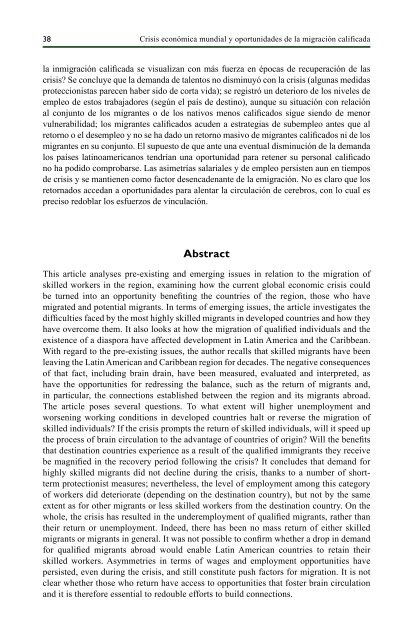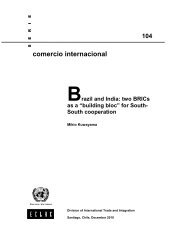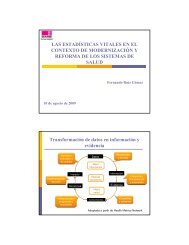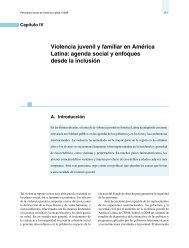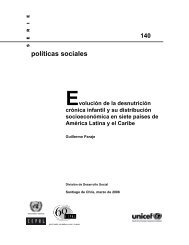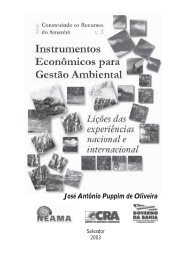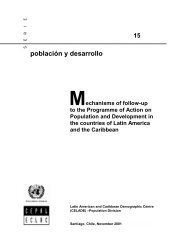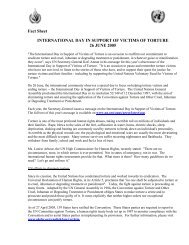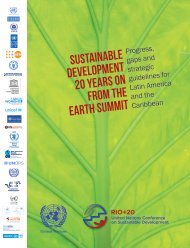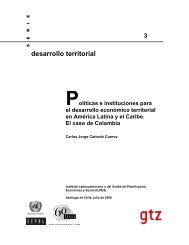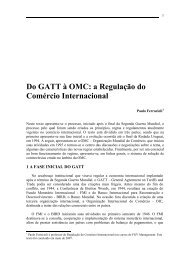Documento en formato pdf (3694 kb) - Cepal
Documento en formato pdf (3694 kb) - Cepal
Documento en formato pdf (3694 kb) - Cepal
Create successful ePaper yourself
Turn your PDF publications into a flip-book with our unique Google optimized e-Paper software.
38 Crisis económica mundial y oportunidades de la migración calificada<br />
la inmigración calificada se visualizan con más fuerza <strong>en</strong> épocas de recuperación de las<br />
crisis? Se concluye que la demanda de tal<strong>en</strong>tos no disminuyó con la crisis (algunas medidas<br />
proteccionistas parec<strong>en</strong> haber sido de corta vida); se registró un deterioro de los niveles de<br />
empleo de estos trabajadores (según el país de destino), aunque su situación con relación<br />
al conjunto de los migrantes o de los nativos m<strong>en</strong>os calificados sigue si<strong>en</strong>do de m<strong>en</strong>or<br />
vulnerabilidad; los migrantes calificados acud<strong>en</strong> a estrategias de subempleo antes que al<br />
retorno o el desempleo y no se ha dado un retorno masivo de migrantes calificados ni de los<br />
migrantes <strong>en</strong> su conjunto. El supuesto de que ante una ev<strong>en</strong>tual disminución de la demanda<br />
los países latinoamericanos t<strong>en</strong>drían una oportunidad para ret<strong>en</strong>er su personal calificado<br />
no ha podido comprobarse. Las asimetrías salariales y de empleo persist<strong>en</strong> aun <strong>en</strong> tiempos<br />
de crisis y se manti<strong>en</strong><strong>en</strong> como factor des<strong>en</strong>cad<strong>en</strong>ante de la emigración. No es claro que los<br />
retornados accedan a oportunidades para al<strong>en</strong>tar la circulación de cerebros, con lo cual es<br />
preciso redoblar los esfuerzos de vinculación.<br />
Abstract<br />
This article analyses pre-existing and emerging issues in relation to the migration of<br />
skilled workers in the region, examining how the curr<strong>en</strong>t global economic crisis could<br />
be turned into an opportunity b<strong>en</strong>efiting the countries of the region, those who have<br />
migrated and pot<strong>en</strong>tial migrants. In terms of emerging issues, the article investigates the<br />
difficulties faced by the most highly skilled migrants in developed countries and how they<br />
have overcome them. It also looks at how the migration of qualified individuals and the<br />
exist<strong>en</strong>ce of a diaspora have affected developm<strong>en</strong>t in Latin America and the Caribbean.<br />
With regard to the pre-existing issues, the author recalls that skilled migrants have be<strong>en</strong><br />
leaving the Latin American and Caribbean region for decades. The negative consequ<strong>en</strong>ces<br />
of that fact, including brain drain, have be<strong>en</strong> measured, evaluated and interpreted, as<br />
have the opportunities for redressing the balance, such as the return of migrants and,<br />
in particular, the connections established betwe<strong>en</strong> the region and its migrants abroad.<br />
The article poses several questions. To what ext<strong>en</strong>t will higher unemploym<strong>en</strong>t and<br />
wors<strong>en</strong>ing working conditions in developed countries halt or reverse the migration of<br />
skilled individuals? If the crisis prompts the return of skilled individuals, will it speed up<br />
the process of brain circulation to the advantage of countries of origin? Will the b<strong>en</strong>efits<br />
that destination countries experi<strong>en</strong>ce as a result of the qualified immigrants they receive<br />
be magnified in the recovery period following the crisis? It concludes that demand for<br />
highly skilled migrants did not decline during the crisis, thanks to a number of shortterm<br />
protectionist measures; nevertheless, the level of employm<strong>en</strong>t among this category<br />
of workers did deteriorate (dep<strong>en</strong>ding on the destination country), but not by the same<br />
ext<strong>en</strong>t as for other migrants or less skilled workers from the destination country. On the<br />
whole, the crisis has resulted in the underemploym<strong>en</strong>t of qualified migrants, rather than<br />
their return or unemploym<strong>en</strong>t. Indeed, there has be<strong>en</strong> no mass return of either skilled<br />
migrants or migrants in g<strong>en</strong>eral. It was not possible to confirm whether a drop in demand<br />
for qualified migrants abroad would <strong>en</strong>able Latin American countries to retain their<br />
skilled workers. Asymmetries in terms of wages and employm<strong>en</strong>t opportunities have<br />
persisted, ev<strong>en</strong> during the crisis, and still constitute push factors for migration. It is not<br />
clear whether those who return have access to opportunities that foster brain circulation<br />
and it is therefore ess<strong>en</strong>tial to redouble efforts to build connections.


